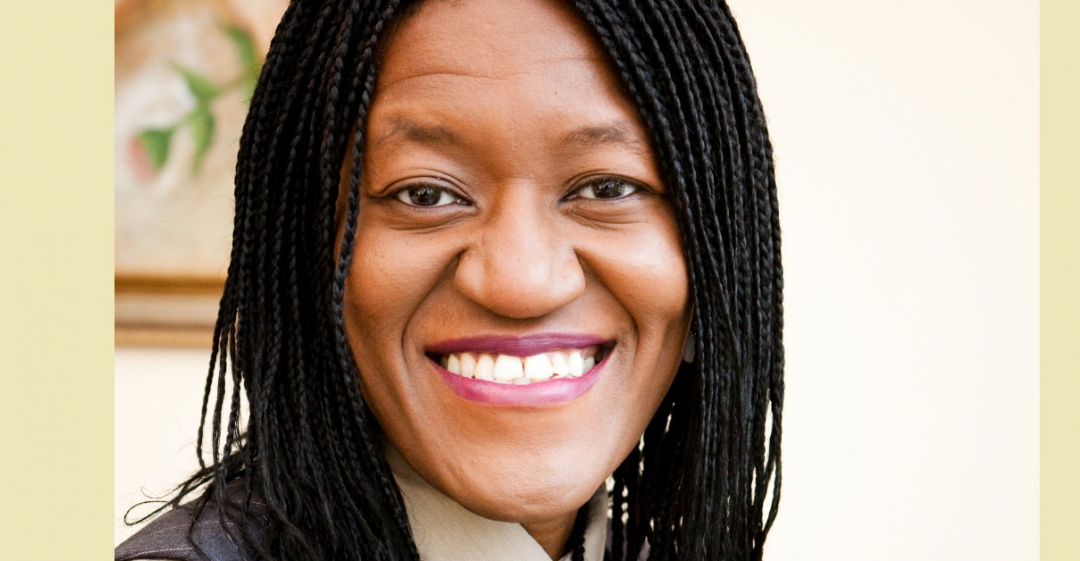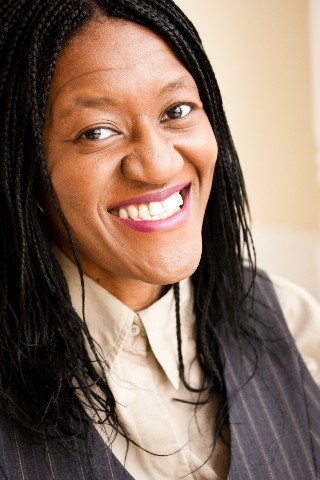“It got to a point where I was limited in what I was able to achieve.”

What work were you doing previously?
I worked freelance as a consultant to help large organisations implement or improve their Human Resource systems.
Alongside this, I had a wider interest in wider society and I did different things ranging from prison visits to youth work, including participating in a program called Common Purpose.
Based on the experience of the program, I ended up writing my first book, Touching The Heart of Milton Keynes: A Social Perspective, and then later went on to write a second book, Consequences: Diverse to Mosaic Britain.
What are you doing now?
I predominantly work with small businesses as a consultant specialising in talent management, inclusion and employee engagement.
During the pandemic, I decided to do some research around women in the workplace from the perspective of men, which became my third book, Male Perspectives of Women at Work.
As part of my research, I had a number of conversations with different men and really enjoyed the art of conversation. As a result, I shaped my work with small businesses to be more conversation-based.
Lastly, the community side of what I do has evolved to focus on young people who have been in care, and I’m developing a program and system to support them.
Why did you change?
It got to a point where I was limited in what I was able to achieve.
A lot of the time when you’re working with large organisations, they already know what they want. Sometimes they ask for your opinion and then after a consultation you’ll tell them what’s needed, but they might do something different.
I therefore wanted to work with smaller organisations where I could have more of an impact.
When was the moment you decided to make the change?
It had been on my mind for some time that I wanted to work with smaller organisations where I'm better able to influence the outcomes.
I’d started networking and looking for those opportunities. But initially while I was out networking and building these relationships, I’d be contacted about a project with a larger company.
I’d take it on, but those big company projects tended to be ones where they wanted me to be there for five days a week, even if I wasn’t needed for all that time. The hours were long, so I found I wasn’t able to network anymore, or go out to look for other opportunities.
The relationships that I’d been building would stall because I wasn’t in constant contact with them.
I reached a stage where I had to make a decision – I’m either going to continue to do the big projects, or I’m going to focus on smaller businesses, for as long as it takes to build up the work. And that’s what I ultimately did.
How did you choose your new career?
I’m a deep thinker, so I'm always thinking and reflecting.
But there were three key things that helped me clarify my thoughts in terms of what I wanted to do moving forward:
Sharing my thoughts with other people – when you have conversations you develop a deeper awareness of others but fundamentally of yourself. I share my ideas and test things out with them, where they can give me feedback. That helps me clarify my thinking.
I listen to a lot of podcasts. There are people who I’ve listened to over time where I’ve noticed that I can connect to and relate to what they share. These acted as signposts.
Journaling and visualisation help to bring my thoughts together, and help me see what my ideas have the potential to lead to.
Are you happy with the change?
I’m happy with how things are progressing.
I put it this way because I’m someone who wants to have a big impact. I’m happy with the journey so far, and I’m learning patience to believe that I'll go on to achieve as much as I hope and believe I can achieve.
What do you miss and what don't you miss?
There was an element of stop and start that I don’t miss.
I’d work on one project then stop, and while sometimes the next project would start immediately, sometimes there’d be a bit of a break in between where you’re pulling your hair out. I don’t miss that.
When working on those corporate projects, it was very good pay for extended periods of time, so there was greater security. You knew you were going to get paid well, consistently.
For smaller businesses with smaller clients, the rates are different, and it takes longer to build up that consistency of income.
How did you go about making the shift?
My own organisation was already set up as part of the work I was doing with larger organisations, but I started focusing on marketing myself more to smaller businesses.
When I started doing that, I was still going into larger organisations when things were slow.
I reached a point where I knew I couldn’t achieve my objectives in relation to working with smaller businesses if I kept going back to the larger organisation contract work, which was consuming lots of my time, so I started saying no to the big projects.
What didn't go well? What wrong turns did you take?
There’s been the odd occasion where things haven’t worked as smoothly as I would have liked them to, but it’s a case of taking the learning and moving forward from there.
There’s also the challenge of finding the right people to collaborate with. I have made the mistake of choosing the wrong person at least once.
How did you handle your finances to make your shift possible?
It can be challenging.
Even with the bigger contracts there would at times be big gaps between contracts, so I had to have the mindset that I’d spend what I needed for living costs, then save and invest the rest to cover income gaps.
I therefore already had that discipline, which helped.
What was the most difficult thing about changing?
The challenge of having those quiet periods in between contracts, during which I would at times question myself.
There’s also the frustration of people that say they want to work with you, but don’t come back to you, or don't share their reasons or feedback if they choose not to work with you, which can also lead you to question yourself.
What help did you get? 
I have someone who isn’t a formal coach but she does tend to fall in that position.
You could argue that we also co-coach each other which also provides me with additional insights from her experiences.
I belong to a few networks linked to professional organisations like The Chartered Institute of Personnel and Development (CIPD). They’re useful for sharing experiences and ideas as well.
The biggest thing for me is knowing myself, believing in myself, and having a support system that reminds me of how good and capable I am. They also tend to connect me with networking opportunities and contacts.
What have you learnt in the process?
It doesn’t matter who you’re working with, or how much you trust a person, a key lesson for me has been to do the contracting up front.
Don’t just assume that because it's someone you trust, that you can work contract terms or payment schedules out later. Always contract upfront and constantly review to ensure expectations and outcomes are aligned.
What would you advise others to do in the same situation?
First and foremost, know yourself.
The clearer you are about who you are and what you believe, the easier it is for you to find the right opportunities, and for the right opportunities to find you. It’s also easier for you to be able to say no to the things that don’t fit what you want.
Also recognise that everything you’ve done has value and can add to what you want to do going forward.
I think in my earlier career I did things because they seemed interesting, or I liked the sound of them. Now when I begin to connect the dots backwards, I can see the significance of everything I’ve done. I can see how it all connects to what I’m now more consciously working to achieve.
Lastly you can’t do it all by yourself, so having people you can trust to support your journey makes all the difference.
To find out more about Susan’s services, visit www.mosaicworld.live



